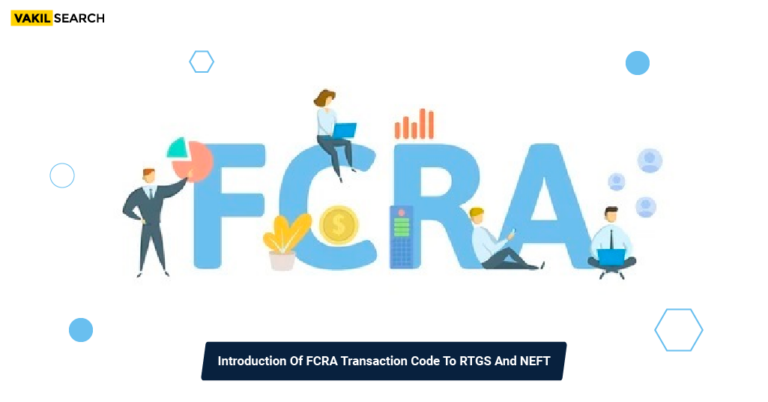The NGO as a public charitable trust registration process involves various requirements and mandatory documents.
You may have registered an NGO as a public charitable trust in India. What steps do you need to take after registration? In this article, find out what the requirements are for maintaining and operating your NGO as a public charitable trust in India.
What is a Public Charitable Trust?
A public charitable trust (PCT) is a type of nonprofit organization in India. PCTs are registered with the Ministry of Social Justice and Empowerment under the Societies Act, 1860. They are different from private charitable trusts, which are not subject to the same regulatory and reporting requirements.
A PCT is created by a group of individuals who agree to pool their resources and operate as a single entity in order to charitable endeavors. The trust can be set up for any purpose, but is commonly used to provide grants or donations to other organizations or individuals. In order to qualify as a PCT, the group must have at least ten registered members and an authorized representative who can sign legal documents on their behalf.
PCTs have several benefits over traditional charities: they can receive government subsidies, offer tax breaks to donors, and distribute income directly to beneficiaries. Because PCTs are registered with the government, they are also more likely to be able to receive funding for their projects from private sources.
Once you receive the registration certificate of your Trust, you can commence operations and form an executive committee. The executive committee can have any number of members without any restrictions on maximum or minimum limit.
Types of Charities in India
There are three types of charities in India: private, public, and private-public.
A private charity is a charitable organization that is owned and operated by its trustees or donors. Private charities usually have unrestricted access to donor funds and can spend these funds as they see fit. However, private charities are not required to report their activities to the government or the public.
A public charity is a charity that is registered with the government and is subject to certain reporting requirements. Public charities are typically funded through taxes paid by their members or donors. In addition, public charities are generally prohibited from engaging in partisan activity or lobbying the government.
A private-public charity is a hybrid type of charity that is both private and public. Private-public charities are usually created when a private charity desires greater exposure or access to resources than would be available if it were a public charity. Private-public charities must comply with many of the same reporting requirements as public charities but also must disclose information about their political activities and financial relationships with other organizations.
The resolution must address the addition or removal of any Board members, governing council members, or trustees.
- There is a resolution regarding the executive committee, such as the names of the members, defining their roles, appointing them as Chairman, Secretary, Treasurer, etc. Depending on the number of members, designations can be made.
- Creating long-term executive bodies or members, such as patronizing councils and managing trustees.
- Establishing new branches or offices and determining the working area.
- Taking decisions about activities, projects, etc. Each member is assigned responsibilities in this regard.
- A resolution to form a subcommittee or forum at the local or regional level.
- In the future, we will associate with other Trusts/organizations.
- The minutes of each meeting will be conserved.
- Preparation of the Trust’s legal seal and stamp.
- In order to obtain a Pan Card in the name of the Trust, a resolution has been passed.
Legal Benefits of Registering an NGO with a Public Charitable Trust
Public charitable trusts (PCTs) are an excellent way to manage and grow your NGO. NGO Registration Form is Registering with a PCT can offer a number of legal benefits, including:
– Increased public transparency – By registering with a PCT, your NGO will be publicly listed on the trust’s website and in the official registry. This increased transparency can help raise awareness about your NGO and increase donations from the public.
– Reduced tax obligations – In order to qualify for tax exempt status under section 80G of the Income Tax Act, an NGO must be registered with a PCT. By registering with a PCT, your NGO will be automatically considered to be registered with the PCT. This means that all income generated by the NGO will be considered exempt from taxes.
– Reduced legal costs – By registering with a PCT, your NGO will be able to save on legal costs associated with operating as a nonprofit organization. The fees charged by a PCT can range from $100 to $1,000 per year.
– Increased credibility – A registration with a PCT can help build credibility for your NGO among potential donors and partners. This credibility can help attract new donors and partners.
Legal Benefits of Registering an NGO as a Public Charitable Trust
Public charitable trusts are an excellent way to shield your organization from taxes and regulations. Here are three important benefits to registering your NGO as public charitable trust:
- The registered NGO as public charitable trust will be exempt from income tax.
- The registered NGO as public charitable trust will be recognised as a legal entity, which means that it can sue and be sued in its own name, and its property can be taken into account in court proceedings.
- The registered NGO as public charitable trust can hold property and receive donations without having to disclose the donors’ identities.
What are the benefits of registering an NGO as a public charitable trust
– Reduced administrative costs: Registering an NGO as a public charitable trust reduces the need for many of the administrative formalities typically required to operate a nonprofit organization, such as filing tax returns and applying for grants from government agencies. This can save the organization time and money.
– Improved access to funding: Many grant-giving organizations are reluctant to fund NGOs that are not registered with the government as public charitable trusts. Registered charities are automatically considered to be of high quality, which can increase your chances of winning funding from private donors.
– Enhanced reputation: A well-run NGO: https://ngodarpan.gov.in/ registered as a public charitable trust can build a valuable reputation in the community and attract new memberships and donations from people who respect its commitment to social welfare.
Conclusion
If you have just registered your NGO as a public charitable trust in India, then the next step is to create an account with the Ministry of Home Affairs (MHA), which will provide you with all the necessary legal documentation. After creating your account, make sure to submit all required documents to MHA within 30 days of registering your NGO. If you have any queries reach out to Vakilsearch










